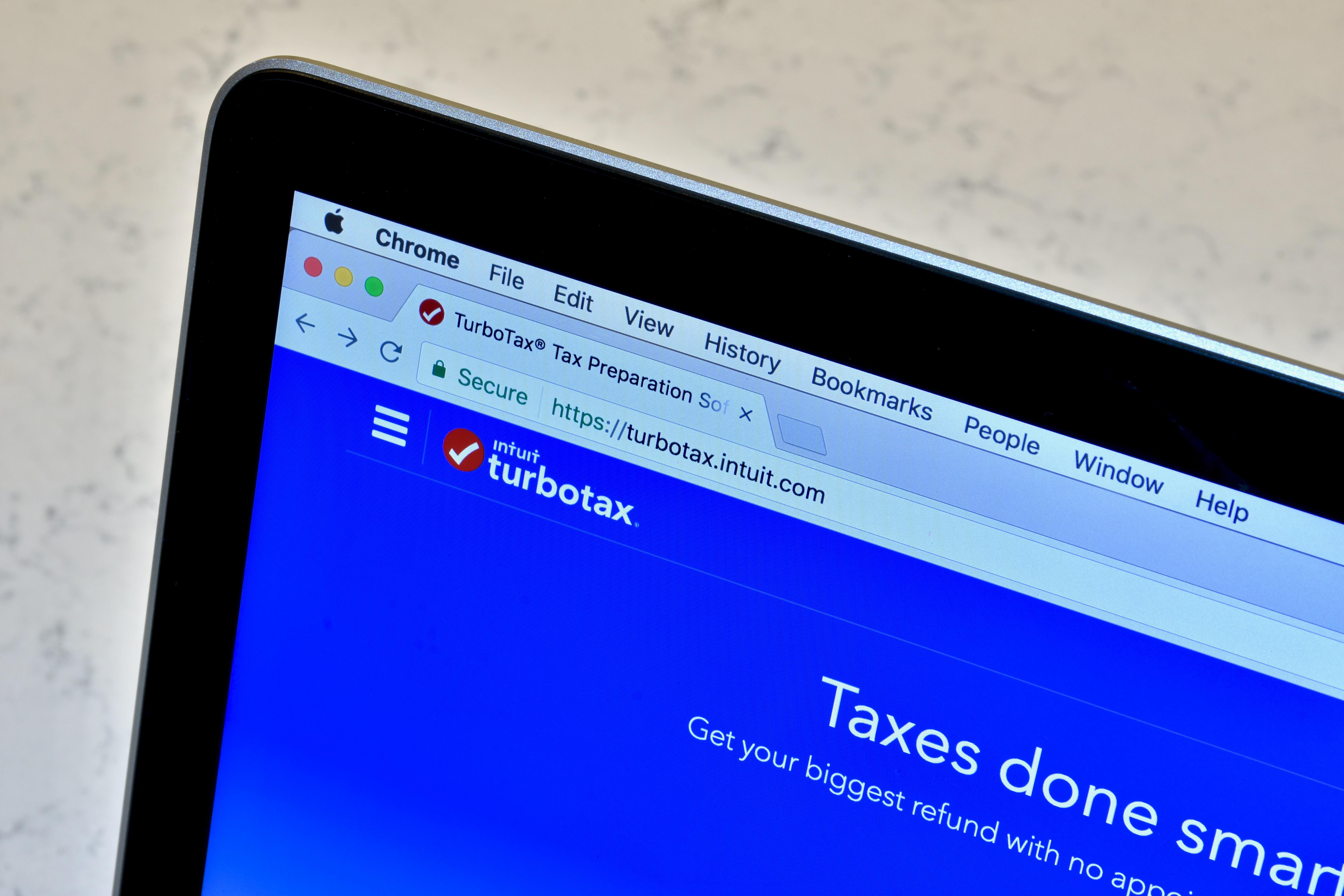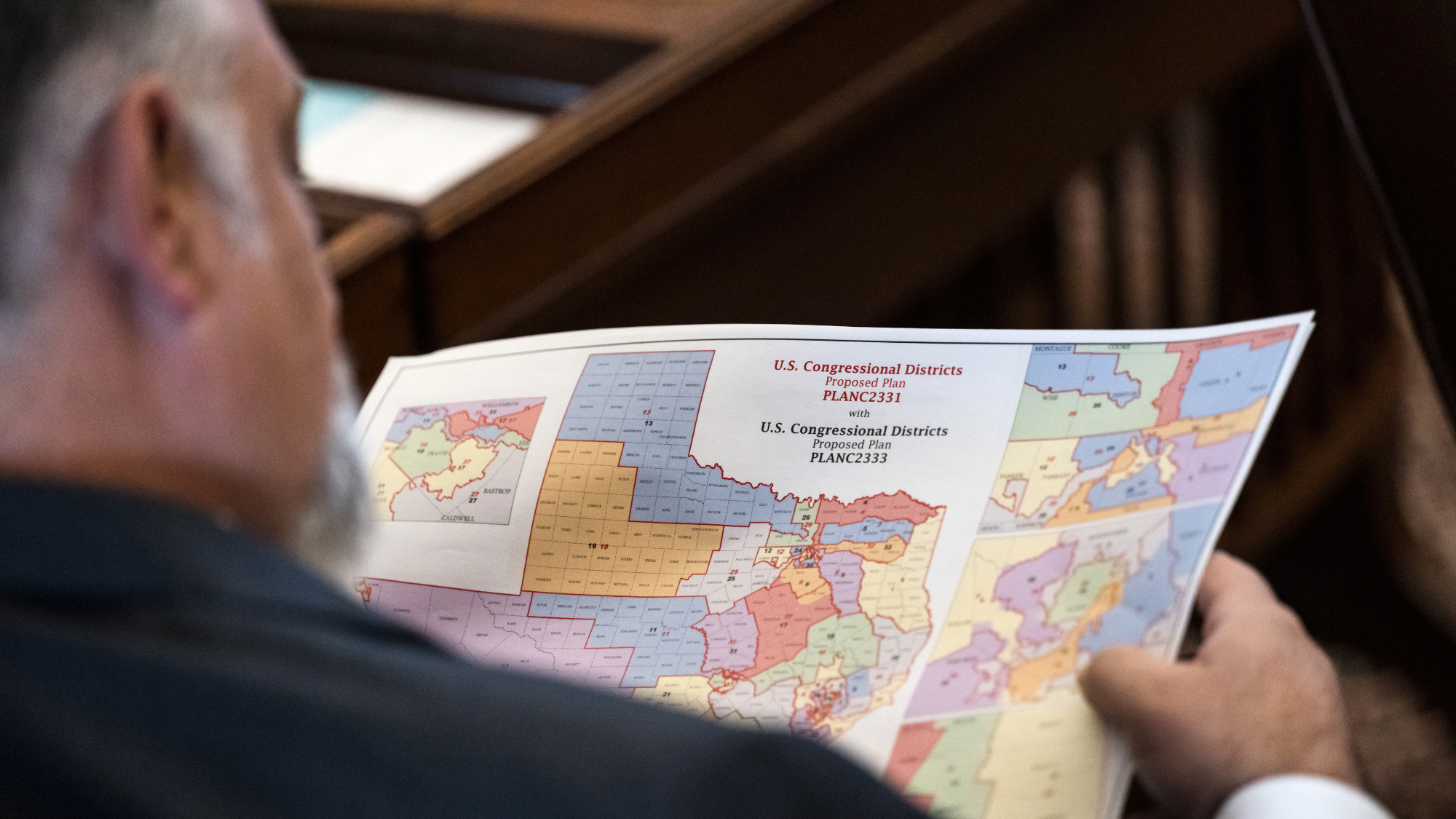How America got fleeced by TurboTax
The tax prep industry isn't making your life easier. It's purposefully making it harder.


Today is tax day: America's annual tradition of muddling through complex paperwork and impenetrable jargon to stay in the Internal Revenue Service's good graces.
Fortunately for us, companies like Intuit and H&R Block provide services and software like TurboTax to make the process more comprehensible. Obviously, they don't do this for free: Americans will pay the tax preparation industry around $12 billion this year for their help. But private companies must make a profit, after all.
So we taxpayers should be grateful, right?
The Week
Escape your echo chamber. Get the facts behind the news, plus analysis from multiple perspectives.

Sign up for The Week's Free Newsletters
From our morning news briefing to a weekly Good News Newsletter, get the best of The Week delivered directly to your inbox.
From our morning news briefing to a weekly Good News Newsletter, get the best of The Week delivered directly to your inbox.
Actually, Intuit and H&R Block and their fellows are a big reason why doing your taxes is so unpleasant.
Admittedly, one problem here is just that the tax code is really complicated, thanks to all the deductions and credits and carve-outs. The mess tends to build over time until, roughly every 30 years, Congress does a housecleaning. And we're due for another round of reform.
But regardless of how complicated the tax code itself gets, there's a lot we could do to make the process of filing our taxes quicker and simpler.
Right now, Americans prepare their tax returns themselves. But when most Americans fill out their wages and dividends and mortgage payments and all the rest on their tax forms, they're not telling the government anything it doesn't already know. So once Americans have filed their returns, the government checks their work against its own calculations, and decides whether it agrees. If the government doesn't agree, taxpayers then choose whether to fight it.
A free daily email with the biggest news stories of the day – and the best features from TheWeek.com
In other words, filling out your own tax return is often an entirely superfluous step. That's why plenty of other countries — Japan, Israel, the Netherlands, Britain, Peru, Sweden, Spain, etc. — don't include it in the process. The government just cuts to the chase: It prepares everyone's tax returns itself, sends them out, and then taxpayers check the returns for errors.
It's called a "return-free filing" system.
T.R. Reid recently described how this system works for his friend Michael, "a Dutch executive with a six-figure income, a range of investments, and all the economic complications that come with an upper-bracket lifestyle."
An American in the same situation would have to fill out a dozen forms, six pages long. Michael, by contrast, sets aside 15 minutes per year to file his federal and local income tax, and that's usually enough. But sometimes, he told me, he decides to check the figures the government has already filled in on his return. At this point, Michael was getting downright indignant. "I mean, some years, it takes me half an hour just to file my taxes!" [T.R. Reid, The New York Times]
Imagine that! Getting upset because the entirely free process took half an hour instead of 15 minutes. Here in America, by contrast, the average taxpayer will spend 13 hours and $200 to get their tax return finished and filed.
Past studies estimate that at least 40 percent of Americans would be eligible to get return-free filing, should we move to such a system. So why on Earth don't we?
That's where Intuit, H&R Block, and their ilk enter the picture. As ProPublica and the Sunlight Foundation have documented, the tax preparation industry spends millions upon millions lobbying Congress. And one of the main things they lobby against is moving to return-free filing. Multiple congressional attempts to create such a system have crashed and burned, including a 2016 effort by Sen. Elizabeth Warren (D-Mass.) and others. The industry even fought similar efforts at the state level, and pushed bills that would explicitly bar the U.S. government from embracing return-free filing.
America does have a public-private partnership between the IRS and the tax preparation companies, which ostensibly offers free online tax filing to lower- and middle-class families. But it's confusing. And, not surprisingly, it nudges users towards products that require payment. While 70 percent of Americans could use this option in theory, under 2 percent actually do. Meanwhile, the industry uses that partnership as leverage to get the IRS to sign agreements that it won't create a free-return system.
Warren called the setup "a front for tax prep companies who use it as a gateway to sell expensive products no one would even need if we'd just made it easier for people to pay their taxes.” Her staff even issued a long and detailed report based on much of ProPublica's work.
The tax preparation industry and its allies in Congress argue that making the IRS both tax collector and tax preparer would create a conflict of interest: The government wants more tax revenue, so it might inflate your tax liability by not giving you all the credits and deductions you qualify for. But both systems end at the same place: The government tells you what it thinks your liability is, and you either challenge it or you don't. In return-free filing systems as in our own, you don't have to accept the government's version. You can disagree, make adjustments, etc. Return-free filing just cuts out the nonsense beforehand.
Now, there's a more likely reason the industry opposes return-free filing: It would massively cut into their customer base and revenue. "We anticipate that governmental encroachment at both the federal and state levels may present a continued competitive threat to our business for the foreseeable future," Intuit told its investors recently.
Even worse, poor Americans are particularly vulnerable to exploitation. First off, they desperately need what tax breaks they get, and have less time or resources than anyone to claim them. Second, in an echo of the problem with payday lenders, poor Americans often lack bank accounts and face other challenges that give tax preparation companies even more opportunities to fleece them.
In short, making the process of filing your taxes as unpleasant as possible is a very big and very lucrative business.
Jeff Spross was the economics and business correspondent at TheWeek.com. He was previously a reporter at ThinkProgress.
-
 Supreme Court revives Texas GOP gerrymander
Supreme Court revives Texas GOP gerrymanderSpeed Read Texas Republicans can use the congressional map they approved in August at President Donald Trump’s behest
-
 Boat strike footage rattles some lawmakers
Boat strike footage rattles some lawmakersSpeed Read ‘Disturbing’ footage of the Sept. 2 attack on an alleged drug-trafficking boat also shows the second strike that killed two survivors who were clinging to the wreckage
-
 Elizabeth Gilbert chooses books about women overcoming difficulty
Elizabeth Gilbert chooses books about women overcoming difficultyThe Week Recommends The bestselling author shares works by Tove Jansson, Lauren Groff and Rayya Elias
